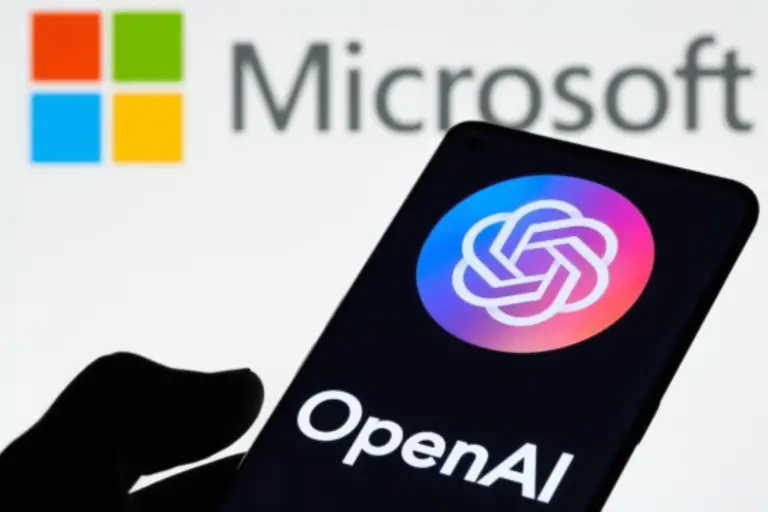
OpenAI Startup Fund Supports AI Healthcare Venture Co-Founded by Arianna Huffington
Arianna Huffington and Sam Altman have created Thrive AI Health, an AI-powered assistant that will give you personalized health advice on things like sleep, nutrition, fitness, and stress management. Thrive Global and OpenAI’s Startup Fund support the company, aiming to enhance accessibility to health coaching while safeguarding your privacy.
Arianna Huffington, founder of The Huffington Post, and Sam Altman, CEO of OpenAI, are both backing a new company called Thrive AI Health. Its goal is to make AI-powered assistant technology that will help people live healthier lives.
A press release released Monday said that Thrive AI Health, which is backed by Huffington’s mental health company Thrive Global and the OpenAI Startup Fund, an early-stage venture fund that is closely linked to OpenAI, will try to make an “AI health coach” that can give personalized advice on sleep, food, fitness, stress management, and “connection.”
DeCarlos Love has been named CEO. He was previously in charge of fitness and health at Google’s Fitbit subsidiary, mostly on the tech giant’s Pixel Watch wearable. Helen Walton, who helped start Walmart, runs the Alice L.
The Walton Foundation gives money to Thrive AI Health. The Alice L. Walton School of Medicine is one of Thrive AI Health’s first health partners.
At first, it wasn’t clear how much money Thrive AI Health’s backers had put into the business. We requested more information and will update this post when we hear back.
According to an opinion piece in Time, Huffington and Altman say that Thrive AI Health’s ultimate goal is to train an AI health “coach” based on scientific research and medical data.
They intend to achieve this by utilizing a new health data platform and collaborating with partners such as Stanford Medicine. An app for smartphones and Thrive’s business products has what Huffington and Altman call a “virtual assistant” that learns from how users behave and gives them real-time health-related “nudges” and suggestions.
“Right now, most health advice is pretty general, but it’s still important,” Huffington and Altman write. The AI health coach will provide personalized, highly specific advice for each individual:
In the afternoon, replace your third soda with water and lemon; take a 10-minute walk with your child after picking them up from school at 3:15 p.m.; You should start getting ready for bed at 10 p.m. because you have to be up at 6 a.m. the next morning for your flight.
The tech industry has been working for a long time to create AI-personalized health-focused apps. Thrive AI Health is the latest in this line. A lot of them have run into business, technical, and legal problems that they can’t solve.
In 2015, IBM launched its Watson Health division to analyze vast volumes of medical data more quickly than a human doctor, to uncover insights that could improve health outcomes.
Despite spending $4 billion on acquisitions to strengthen Watson Health, the technology proved to be subpar at best.
In other news, the NHS-backed health chatbot startup Babylon Health, which claimed to “automate away” doctor visits, went out of business after investigations revealed no evidence that its technology outperformed a doctor.
Babylon was once worth more than $4.2 billion, but in 2023, it filed for bankruptcy and sold all of its assets for less than $1 million.
Research has shown that AI sometimes perpetuates negative stereotypes in health research and the medical field at large.
For instance, a recent study found that OpenAI’s chatbot platform, ChatGPT, often gives wrong answers to questions about kidney function and skin thickness that feed into false ideas about biological differences between black and white people.
A different study discovered that biased AI models can deceive even experienced doctors. This suggests that it might be challenging to get rid of the biases.
Thrive AI Health: Balancing Innovation
To keep critics away, Huffington and Altman are selling Thrive AI Health as a more careful and thoughtful way to deal with health issues than what has come before.
They say it will “democratize” health coaching and “address growing health inequities” in a way that is safe and respects people’s privacy. Gbenga Ogedegbe, the director of NYU Langone’s Institute for Excellence in Health Equity, has been hired as an advisor by the company.
It also says that the research data on the use of its products will be “peer-reviewed,” and that users will have the final say on which data Thrive AI Health’s products use to make their suggestions.
History, on the other hand, shows that it might be difficult for Thrive AI Health to find a favorable balance between “democratizing” its technology and protecting patient privacy.
In 2016, it came to light that the Royal Free NHS Trust in London had given Google’s DeepMind information on more than a million patients for an app development project, even though the patients did not know or give permission.
The UnitedHealth and 23andMe scandals, which happened recently and affected a lot of people, show how risky it is to give sensitive health information to outside parties.
Thrive AI Health may learn from the mistakes made by its competitors and predecessors. Experts are closely monitoring it, ensuring a challenging journey ahead.


